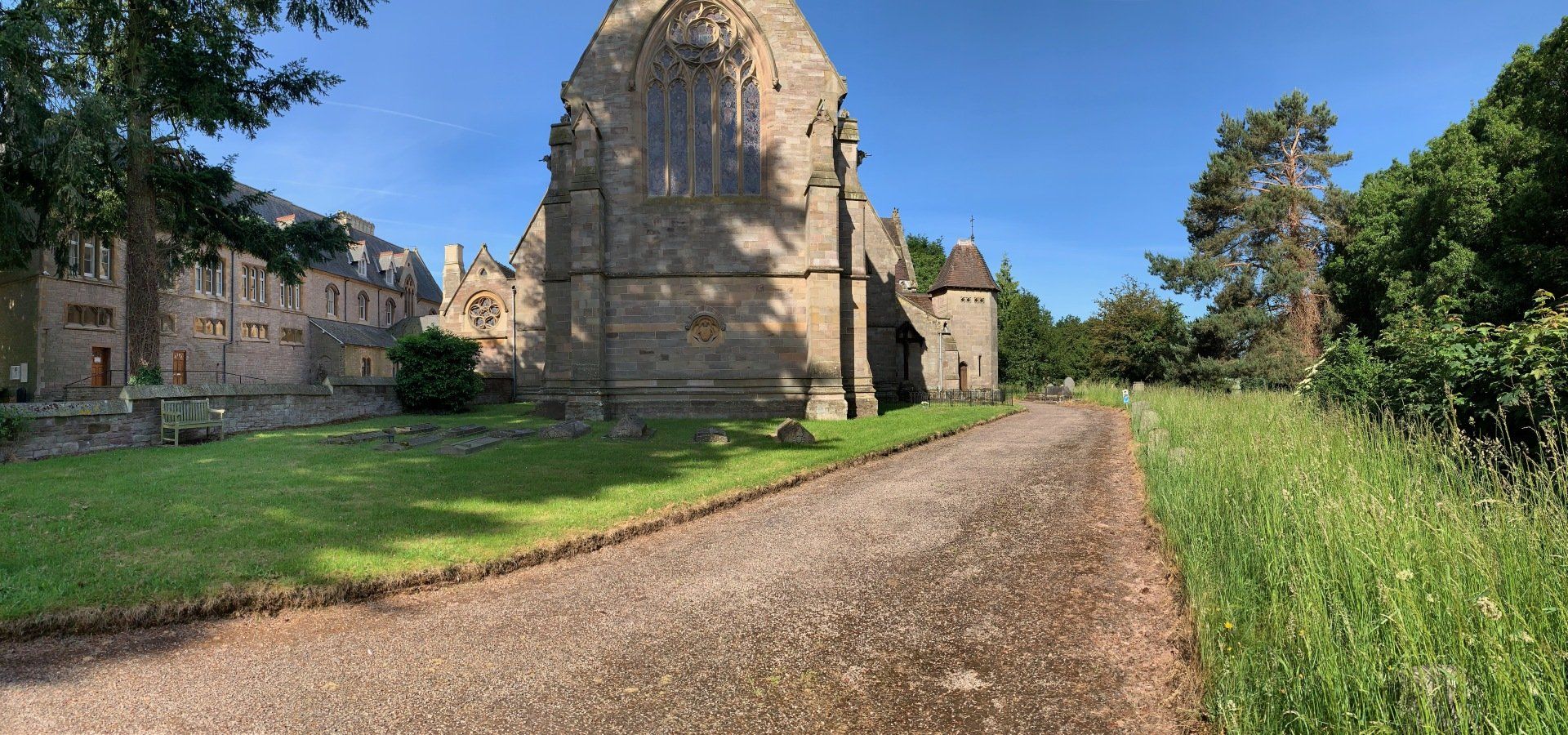Message of Abbot Paul - Sunday 1st August
Message from Fr Paul for Sunday, 1st August 2021
Today we continue our reading of John chapter 6, having read the miracle of the multiplication of loaves and fish last Sunday. As Jesus himself will go on to explain to the crowd, that miracle was, in fact, a sign of far deeper and more important realities than just feeding a large crowd of hungry people. Today we read verses 24 to 35, the beginning of the discourse on the Bread of Life. Jesus and his disciples have crossed over Lake Tiberius to Capernaum, but eventually the people catch up with them. Jesus tells them straight, “you are not looking for me because you have seen the signs but because you had all the bread you wanted to eat. Do not work for food that cannot last, but work for food that endures to eternal life, the kind of food the Son of Man is offering you, for on him the Father, God himself, has set his seal.” They are following Jesus for all the wrong reasons, which, of course, is hardly surprising. It’s easier to accept the miracles that Jesus performs at face value and his teaching for the beauty of his words. Jesus calls this, “food that cannot last.” Jesus wants them to work for the “food that endures to eternal life.” Although we talk about eternal life, what does this mean and are we even convinced it exists? So they ask him, “What must we do if we are to do the works that God wants?” It strikes me that there’s more humility than self-interest in what they say. They genuinely want to know. Jesus replies, “This is working for God: you must believe in the one he has sent.” In other words, believe in me. But why should they believe in him? They ask for a sign, as though the feeding of the five thousand were not a sign, citing the miracle of the manna during the Exodus. “Our fathers had manna to eat in the desert; as scripture says: He gave them bread from heaven to eat.”
Jesus answers them by asking them to think not of the past but of the present.
“In truth I tell you, it was not Moses who gave you bread from heaven, it is my Father who gives you the bread from heaven, the true bread; for the bread of God is that which comes down from heaven and gives life to the world.” Jesus is referring to himself, born at Bethlehem, the House of Bread, he is the True Bread come down from heaven, sent by God to give life to the world. When they hear this, they cry out with one voice, “Sir, give us that bread always.” Their words remind us of the Samaritan woman at Jacob’s well: “Sir, give me that water always.” Everything has been leading up to the reply of Jesus. “I am the bread of life. He who comes to me will never hunger; he who believes in me will never thirst.” When they first caught up with Jesus, the crowd had asked him, somewhat unwittingly, “Rabbi, when did you come here?” Those words can be taken at their face value, but every sentence in John has a double meaning, a deeper one, to which, “I am the bread of life,” is the answer, i.e. the Incarnation. This is the first of a series of “I AM” sayings in this Gospel that remind us of the burning bush story. When Moses asked God his name, God replied, “Thus you shall say to the Israelites, ‘I AM has sent me to you’” (Exodus 3:14). “I am,” of course, can be simple self-identification, but in John’s Gospel it clearly means more. The “I AM” sayings in this Gospel are as follows:
• “I am he” (4:26)
• “I am the bread of life” (6:35).
• “I am the living bread” (6:51).
• “I am the light of the world” (8:12; 9:5).
• “Before Abraham came into existence, I am“ (8:58).
• “I am the sheep’s door” (10:7).
• “I am the door” (10:9).
• “I am the good shepherd” (10:11).
• “I am the resurrection and the life” (11:25).
• “I am the way, the truth, and the life” (14:6).
• “I am the true vine” (15:1).
Our reading of John 6 stops here until next Sunday, but there’s a lot to think about and meditate on, food for thought and food for prayer. Above all, let us give thanks to our heavenly Father for sending into our world the Bread of Life, Jesus our Lord and Saviour. “I am the bread of life. He who comes to me will never hunger; he who believes in me will never thirst.










